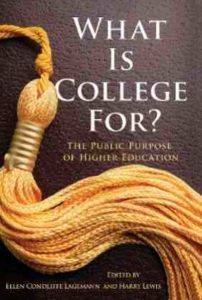2. Topics of importance category archive
Are You a Procrastinator? 0
If you are, you may put off reading this. That would be your first mistake. To all you college bound students, you will soon be taking a milestone step in your life journey. Hopefully it will be the college of your dreams. Even if it is not, if you have done your research properly, all will work out fine. Thousands of college graduates have learned, in hindsight, that it was meant to be and it wasn’t bad after all.
They quickly learned in the first month of college that a professor’s expectations and assignments given would be nothing like those from teachers in high school, even those AP classes they took that were supposed to prepare them for college level work. Those that got through in four years quickly learned how to get organized and stay focused.
If you were a last-minute kind of student in high school, that may have worked. But college is a different world. If it is not, then you may be at the wrong college. Because if you are not challenged, you will not grow intellectually, spiritually, or socially. But I digress.
The phrase “I’ll do it later” is probably the biggest killer of college success. Chances are, you will not get it done later. If you do wing it later, it will be sloppy and not your best effort. This causes stress and sets you up for the kind of anxiety that leads to dropping out of college because of low grades and/or illness.
The day planner that your proud grandmother gives you at high school graduation won’t do you any good if you are constantly putting things off. Sometimes students (and adults) put things off because they are intimidated by them. It manifests in the subconscious. You are afraid of failure so you set yourself up for failure. The solution is to simply get started. Break the task into manageable chunks and schedule time for each task.
Maybe it is long blocks of time that you find intimidating or tedious. No problem. You can do anything for 25 minutes. Am I right? Work with NO distractions. Put the electronic gizmos away and out of sight and sound. That includes the ear buds. No, you don’t work better when you listen to music. 🙂
Buy a timer and set it for 25 minutes. Focus on the task seriously for that period. As you begin to see something accomplished, whether it is a writing or reading assignment, you will begin to feel better about it. Dare I say, even inspired to do more. You also will soon realize that by tacking homework when it is assigned is soooo much easier than waiting until the 11th hour.
Still stuck? Another technique you can apply is to blatantly lie to yourself. Tell yourself that you don’t have to do the entire thing. You are just going to read a couple of paragraphs or just draft an outline. What will happen is that you will get some momentum going and realize that you can do more than you first thought.
Reading a few paragraphs becomes finishing the whole chapter. Outlining the paper becomes drafting the first paragraph and so on.
You are not alone, the majority of humans find a reason to put things off that we either don’t deem important or don’t like even if we know it is important. Even administrators at the most selective colleges like Princeton University realize that procrastination needs to be addressed. Look here to see what they have done to help their undergraduates.
Do You Want to be a Doctor? 0
 Do you have a student or are you a student with aspirations to be a Doctor of Medicine or pursue any healthcare profession? With all the talk about healthcare issues and challenges, our basic western system of Allopathic medicine continues to frustrate both the patient and caregiver. My strong suggestion to aspiring doctors and nurses is to read this book and/or this one and watch this in its entirety before entering a field that is getting more purblind in understanding true wellness and based on scientific methods that have proven to be inadequate when it comes to curing…much less preventing disease.
Do you have a student or are you a student with aspirations to be a Doctor of Medicine or pursue any healthcare profession? With all the talk about healthcare issues and challenges, our basic western system of Allopathic medicine continues to frustrate both the patient and caregiver. My strong suggestion to aspiring doctors and nurses is to read this book and/or this one and watch this in its entirety before entering a field that is getting more purblind in understanding true wellness and based on scientific methods that have proven to be inadequate when it comes to curing…much less preventing disease.
My philosophy of placing more emphasis on diet and nutrition in the prevention of disease than the treatment of symptoms and strengthening the body’s natural immune system is making more sense as the nation as a whole becomes sicker physically, mentally, and spiritually. Bastyr University and other  Naturopathic colleges teach that approach. It is all about the ounce of prevention worth more than a pound of cure. Mainly when the cure is designed to manage the symptoms with questionable drugs and not address the real cause of the disease. Recently, intelligent whistleblowers have been speaking out against the other big-money maker product, vaccines! It is, particularly now, a significant risk as more M.D.s are realizing how damaging vaccines can be. Nowadays, it is essential that parents, particularly mothers, research the reasons for any vaccines and how they are determined to be safe before allowing their children to be vaccinated.
Naturopathic colleges teach that approach. It is all about the ounce of prevention worth more than a pound of cure. Mainly when the cure is designed to manage the symptoms with questionable drugs and not address the real cause of the disease. Recently, intelligent whistleblowers have been speaking out against the other big-money maker product, vaccines! It is, particularly now, a significant risk as more M.D.s are realizing how damaging vaccines can be. Nowadays, it is essential that parents, particularly mothers, research the reasons for any vaccines and how they are determined to be safe before allowing their children to be vaccinated.
Not convinced? Here is a refreshing, well-researched article by a West Point graduate and former army officer. Now, with Codex Alimentarius, Big Pharma is trying to make it illegal for a physician to practice proven alternative therapies to heal the body and/or prevent the disease in the first place. Call me if you wish to explore proven solutions to achieve optimal health for your family. It’s not “rocket science”. Eric Goodhart
Future Docs Are Confused, Too
Struggling to understand the national debate over health care? You’re not alone — your future doctor may be baffled, too.
A study published in the September issue of Academic Medicine found that nearly half of all medical students believe they have been inadequately educated about the “practice of medicine” — especially related to medical economics.
Our patients expect us to understand the system, said Matthew M. Davis, one of the researchers and an associate professor of pediatrics and internal medicine in the Child Health Evaluation and Research Unit at the University of Michigan’s medical school. If we don’t, that can result in poor patient care. And if we don’t expect doctors to understand the healthcare system, who will?
The study, by Davis and two colleagues at Michigan, examined tens of thousands of survey responses from medical students about the extent and perceived quality of their training in an array of curricular areas, including clinical care and decision-making and the practice of medicine—the latter including health care systems, managed care, and practice management, among other areas. Read more »
RATIO ~ SCHMATIO 0
Ratio ~ Schmatio
By SAMANTHA STAINBURN (Former managing editor of Teacher Magazine)
ISABELLE CARBONELL, a college senior from Bethesda, Md., has thrived over the last four years as part of a small learning community. Most of her classes have had fewer than 35 students. For freshman and sophomore years, her dormitory was in the same building as the cafeteria and many of her classrooms and professor’s offices. You see the same people over and over, and that lets you create networks, she says. You get to know your professors informally. You see them in the hallway, they say, How that project going along and you bounce ideas off them. Prospective undergraduates are deluged with statistics from average class size to the number of Nobel Prize winners on staff with which to take the measure of a college. Is Ms. Carbonella’s story an argument for choosing your college by the numbers?
Not exactly. She attends the University of Michigan at Ann Arbor, which has some 25,000 undergraduates, 4,100 full-time faculty members and 540 buildings. If she had been looking for an intimate experience, the numbers would have led her elsewhere.
That’s just one of the problems with statistics: they rarely tell the whole story. (Ms. Carbone’s story is that she signed up for Michigan’s Residential College, a program in which students live and attend classes in the same building. She now lives off campus but continues to take classes in the R.C. building.)
Another problem with numbers: Often statistics don’t measure what’s important, says Lloyd Thacker, executive director of the Education Conservancy, a nonprofit group working to improve the college admissions process. For example, the selectivity of a college, measured by how many applicants it denies, provides little information about the educational experience there. Read more »
Now What? 0
 Now What? That is the title of a book by Ari King, in 2009 he was an unemployed graduate of Wesleyan University with a $180,000 degree in Italian Studies. He spent the summer after graduation at his home in California thinking about what to do with his life. At summer’s end, with no job prospects, he headed to New York City thinking his opportunities would be better in a town with 8.4 million people.
Now What? That is the title of a book by Ari King, in 2009 he was an unemployed graduate of Wesleyan University with a $180,000 degree in Italian Studies. He spent the summer after graduation at his home in California thinking about what to do with his life. At summer’s end, with no job prospects, he headed to New York City thinking his opportunities would be better in a town with 8.4 million people.
A friend who was a senior at NYU offered him a place to stay with his five roommates. It was deja vu all over again, but now with six roommates, not one. Sleeping bags come in handy in the city when there isn’t a couch available.
Each day he would scour Craigslist and elsewhere, looking for jobs under every category from ˜Government” and ˜Education” to ˜Russian speaking Nanny” to ˜Security Guard”. He grew increasingly frustrated, with a gnawing feeling of defeat and anxiety. Even hospitality jobs, where a decent income from tips could be quite good, were scarce. Once a person landed such a job, they didn’t leave. With the unprosecuted malfeasance on Wall Street, everyone was playing it safe.
His real world wake-up call reaffirmed what I have been seeing for the last 25 years. Too many colleges, for one reason or another, do not prepare their students to bridge the gap from college to the real world very effectively. Of course, we cannot put the blame entirely on colleges. That is why I tell high school students that it is their responsibility to thoroughly research the advising and career services of the colleges they are considering. It is the all-important third A in the AAA process. Plus, they must become a familiar face and known to the personnel in the career services offices no later than the second semester of freshman year. After all, what is college for?
Now, because of the latest pandemic (remember this one?) many people are unemployed or underemployed, not just recent college graduates. What does one do when one can’t get a job? Some may say, keep looking; don’t quit! Easy for them to say. But there is one thing that many bright people with initiative (college degree or not) are realizing; that if you can’t find a job or don’t like the one you have, create one!
But first, you have to look within yourself and identify honestly what you are good at. Ask yourself if you can use that natural strength to not only meet a need that people have but will pay you to fill it. For instance, Ari King enjoyed writing and his teachers recognized he had a flair for writing. He looked around his world. Why not write a guidebook that will help college students prepare for life after college? He did not see many that addressed the issue. He thought “Would people be interested?” The answer, judging by these Amazon reviews, is yes!
While reading his book I was amazed at the majority of college graduates he interviewed who went to college with little thought put into how they were going to live and pay bills after college. Each graduate was asked what regrets he or she had and what could have been done differently. The majority said they did not use the career services office early enough (or at all) to find internships. No wonder so many were jobless upon graduation or working in jobs that a high school graduate would be qualified to do.
little thought put into how they were going to live and pay bills after college. Each graduate was asked what regrets he or she had and what could have been done differently. The majority said they did not use the career services office early enough (or at all) to find internships. No wonder so many were jobless upon graduation or working in jobs that a high school graduate would be qualified to do.
I recommend the book Now What? and encourage all students thinking about college or in college now to read it this summer before they realize that the years in college are a waste of time and money. Contact us if you REALLY want to make sure college is a good investment as well as learn how to keep yourself healthy during these challenging times…and beyond!
It’s Not Just About Getting In 0
 By now, millions of high school seniors across the country have received the news from their colleges. We wish them all the best of success. Spring always brings some surprises, both good and not so good. This year was another tough year. Hopefully, the final decisions that each of them made by May 1 have been carefully thought through.
By now, millions of high school seniors across the country have received the news from their colleges. We wish them all the best of success. Spring always brings some surprises, both good and not so good. This year was another tough year. Hopefully, the final decisions that each of them made by May 1 have been carefully thought through.
Now, seniors will be looking forward to proms, accepted college days at their respective campuses and finals, well, maybe not finals. One of the many questions they will be asked at points along the way and while in college will also be a question that has become harder for students to answer.
It is what do you plan to major in?  For the thousands of students who have not seriously researched the options while in high school (as we advise students) will likely be overwhelmed by the choices, particularly at a university where the choices are ever increasing. Colleges and universities reported nearly 1,650 academic programs to the Department of Education in 2015; 355 were added to the list over the previous 15 years as colleges, to stay competitive and current, adopted new disciplines like forensic psychology, global studies, cyber-forensics and agroecology and all kinds of health sciences disciplines, including Adventure Education and Leadership.
For the thousands of students who have not seriously researched the options while in high school (as we advise students) will likely be overwhelmed by the choices, particularly at a university where the choices are ever increasing. Colleges and universities reported nearly 1,650 academic programs to the Department of Education in 2015; 355 were added to the list over the previous 15 years as colleges, to stay competitive and current, adopted new disciplines like forensic psychology, global studies, cyber-forensics and agroecology and all kinds of health sciences disciplines, including Adventure Education and Leadership.
Graduating with a double (or triple) major, minor or concentration as a way to hedge bets in an uncertain job market has become increasingly popular; the number of bachelors degrees awarded to double majors rose 70 percent between 2001 and 2014, according to the DOE.
Is Getting Into College Easier? 0
Is Getting Into College Easier?
You may have read or heard about how the number of applications have spiked at so-called prestigious colleges around the country. That triggers fear in many households with college bound students. Fear is an often-used emotion to control the actions of people as to what to do (or not do) going forward. Some observers of the college selection process say it is actually easier to get into colleges (even the more competitive ones) than in previous years. Really?
They say that many students do not realize that getting into a good college today is a lot easier, and will become even more so in the coming years. That is the case, according to the Hechinger Report. The writers of the report say it is important to let go of the “fear” mindset because they claim it is one of the reasons why students do not bother to apply to more competitive colleges. Instead, they settle for lower quality schools, when they could have been accepted to much better institutions.
Actually, that is not the case with the students we have been guiding over the last 25 years. They are very much focused on the most competitive colleges, often too much so. When their college list begins to take shape, they are often doing it the wrong way from the top down, rather than the bottom up.
 If the reader has college aspirations, you must first think about what is college for and why it is the logical next step for YOU? Though it may become easier to get accepted to college, the same due diligence in finding the colleges best qualified to help you reach your goals is just as important as always. Therefore, even though many colleges and universities may not be that selective, don’t neglect taking the steps that will help you determine if the college to which you apply is qualified to help you reach your goals.
If the reader has college aspirations, you must first think about what is college for and why it is the logical next step for YOU? Though it may become easier to get accepted to college, the same due diligence in finding the colleges best qualified to help you reach your goals is just as important as always. Therefore, even though many colleges and universities may not be that selective, don’t neglect taking the steps that will help you determine if the college to which you apply is qualified to help you reach your goals.
By the way, don’t fall for the well-meaning but misinformed guidance of colleges and some counselors that tell you “Don’t worry about what you want to major in or do for a career. You will have plenty of time to figure that out in college”. If you believe that, read this now.
Yes, it may be easier to get into college in the coming years as there will fewer high school graduates until 2023. We are already seeing college Enrollment Managers conceive ways to not only “fill seats” but with the most revenue/per seat.  Many colleges and universities will be increasing their marketing efforts to attract these students. Families might get to finally have (dare I say) the negotiating power. That’s because these institutions compete with each other when it comes to the record number of applicants. You may already have seen how colleges encourage everyone to apply without regard to their qualifications. The more applications they get, the more they can reject, thus moving up in the rankings.
Many colleges and universities will be increasing their marketing efforts to attract these students. Families might get to finally have (dare I say) the negotiating power. That’s because these institutions compete with each other when it comes to the record number of applicants. You may already have seen how colleges encourage everyone to apply without regard to their qualifications. The more applications they get, the more they can reject, thus moving up in the rankings.
The National Student Clearinghouse Research Center‘s said that there’s actually going to be more colleges looking for students, so getting into college is not something students should be worried about. But what I say is, they should be worried about how they are going to pay for it. For that and other answers to your questions, call us.
Have you heard about our money saving “Dry Run”? 0
 I wish I heard about you sooner is not an uncommon response after I explain what we do. I expected that at least two of the colleges my daughter had her heart set on would give her more financial aid. Every year, several families come to us because they heard from someone that we can help them get more money from the top choice colleges to which their child has been accepted.
I wish I heard about you sooner is not an uncommon response after I explain what we do. I expected that at least two of the colleges my daughter had her heart set on would give her more financial aid. Every year, several families come to us because they heard from someone that we can help them get more money from the top choice colleges to which their child has been accepted.
Quite often we can, but once the horse has jumped the fence and headed for the hills it is much harder to do. You do not want to be a parent who realizes too late that the cost of four years of college is not possible without borrowing an amount that resembles the cost of a antique restored Rolls Royce.
No matter how often I talk about the importance of our money saving heart attack prevention exercise called the Dry Run (step # 3 in the college planning timeline) there are still families that do not take advantage of it. Of course, it is not the end of the world if the student attends a community college for a couple of years. In fact it could be a good strategy in some instances. But more satisfactory outcomes result with planning that includes an early look at the financial options all families have.
 Many families go through the college selection process content not to question the colleges we have financial aid pitch or our average grant package is $33,000. Wide eyed impressionable teenagers are told to “just put your application in and then apply for financial aid. Once you are accepted we will send you a financial aid package.”
Many families go through the college selection process content not to question the colleges we have financial aid pitch or our average grant package is $33,000. Wide eyed impressionable teenagers are told to “just put your application in and then apply for financial aid. Once you are accepted we will send you a financial aid package.”
All that students hear (and some parents) is what they want to hear. Reality comes knocking at the door too late for many of them. Though the most frugal and financially savvy parents have saved enough to cover the first year or two, it often does not cover all four or dare I say, five or six. To do that is very difficult without a steady source of extra income coming into the household. (By the way, we do have a solution for that too. Read the last paragraph here; then give us a call.)
In the meantime, if you have a student still in high school with college aspirations, NOW, not later, is the time to call to complete a Dry Run. It does not matter if the college list hasn’t been started yet either. We can suggest appropriate colleges.
Searching for that Perfect College? 0
 The perfect college doesn’t exist. Almost any college, whether it’s an Ivy or a local community college, can be the foundation for productive and enjoyable college years. Every student’s experience has its ups and downs. Your parents may know what I mean. With colleges putting so much effort into diversification in recent years, few students fit the cookie-cutter images that proliferate in college view books.
The perfect college doesn’t exist. Almost any college, whether it’s an Ivy or a local community college, can be the foundation for productive and enjoyable college years. Every student’s experience has its ups and downs. Your parents may know what I mean. With colleges putting so much effort into diversification in recent years, few students fit the cookie-cutter images that proliferate in college view books.
Like with most things in life, college is what you make of it. If you are determined to study hard and find your social niche, you will probably be happy no matter what school you attend. However, that does not mean you can just throw darts at a map listing all colleges coast to coast. But it is always fun to put a pin on our office wall map when a student matriculates to a college he or she never knew existed until they went through the process I describe below. With hundreds of colleges to choose from, there will be some that fit better than others. But I have found that many students start the process without paying much attention to the purpose of going to college in the first place.
Fortunately, that can be easily rectified with some self-assessment by the student. In other words, you start the process with a careful look at yourself, not with a list of colleges. It is your own honest assessment of your academic profile, interests, learning style, and natural strengths that is central to finding a good fit college.
Most students start their lists, not only by listing well-known schools but the most competitive first. It is a faulty strategy. Before you start poring over view books and catalogs from colleges, you want to examine yourself as a person and as a student. Such an appraisal will yield data about yourself that will allow you to move forward with confidence.

So, once that is all done you can consider other things, like location, total enrollment, male to female ratio, and athletics. Do you want a college within easy driving distance to home or across the country? Many students feel both callings at one time and another. Going to a college in the same state can still provide the independence and freedom students crave if they don’t commute. If you do not plan to be going home often, however, beware of the suitcase school, where the majority of students are locals who split the campus on the weekends.
The current health care concerns based on a “novel” strain of the common Coronavirus called Covid 19 has many people concerned about how far away from home to go college. However, if you are willing to go over 300 miles from home, your pool of prospective schools will grow significantly, not to mention chances of admission may be enhanced as well. That is, if you show some genuine measure of demonstrated interest.
By the way, do NOT dismiss a college without doing your AAA due diligence simply because it has fewer students than your high school. In college, you will likely have peers from all over the country and many countries, unlike your little community of students whom you have known most of your life. It is a big world and your journey has just begun. No better place to do it than within a community where you can learn from both professors as well as fellow undergrads that come from different parts of the globe. Each of you can share ideas and experiences that will be mutually beneficial.
Mistakes to Avoid 0
Ten Ways to Ruin Your College Acceptance Chances
By Jay Mathews
Washington Post Staff Writer
October 1
With just a month before the deadline for early action and early decision applications to many colleges, I offer these examples of wrong-headedness in the admissions process. Many were sent to me by Joseph M. Connolly, a guidance counselor at New Oxford High School in New Oxford, Pa., who has seen much on the job and in postings from counselors and admissions officers to the National Association for College Admission Counseling Web site. Members of my Washington Post discussion group Admissions 101 also contributed.
Remember, these are things you should NOT do.
1. Rack up as many extra points as you can for “expressed interest” in your favorite colleges. This particular obsession was new to me. Connolly has encountered applicants who have inundated admissions offices with voicemails, e-mails and snail mail because they have heard that colleges want concrete indications of interest and don’t think you can overdo it. Believe me, you can. “There is a fine line between showing adequate interest in the school and stalking,” Connolly said. “Unsolicited cakes, pies, cookies, sneakers (the old ‘one foot in the door’ trick), a life-sized statue of you holding an acceptance letter, or a painstakingly detailed scale model of the campus clock tower will not make up for a lackluster academic record.” When colleges look for “expressed interest,” that means they hope that you will show up when their college reps visit your school, that you will visit their campuses and sign the visitor logs in their admissions offices and that you will get your application in on time with no loose ends. If you have a legitimate question, they are happy to receive your e-mail or telephone call. Doing more than that just makes you look desperate, and a little scary. (Ed note: This is how to show interest.) Read more »

